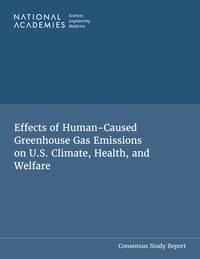Why Does Industry Always Attack New Rules?
It makes businesses look obstructionist and often gains them nothing. So why do they do it?
It seems like every time EPA makes a move, industry says it’s another job-killing power grab by the government and files court challenges within about an hour of EPA’s action. But why? The rule often survives judicial review, so industry spends millions on lawyers and gets nothing in return. It’s true that industry does often win at least part of its challenge, and it sometimes gets a temporary stay that buys it time. But stays are rare in the D.C. Circuit, where many challenges are brought, and often industry wins on only minor points. And yet many of the same companies are trying to build a public image as environment friendly, yet they fight to the death over efforts to clean up the environment. Furthermore, industry is always saying that what it really wants is certainty, so why prolong the uncertainty with litigation.
Admittedly, it’s an exaggeration to say that industry always protests. For instance, industry welcomed an important new EPA rule last week setting fuel efficiency standards for new heavy trucks. It helped that the cost savings from using less fuel greatly outweighed the upfront cost of the improved trucks. But consider the headline for this story: “A Rare Agreement on Climate Rules.”
Obviously, there are many situations where a rule is extremely costly, industry has a strong chance of knocking it out, and the only rational economic decision is to challenge it. But this isn’t always true, so you’d expect to see at least a few more cases where industry just goes along, if only to build a friendlier relationship with regulators.
No doubt the reasons are complex, including some degree of emotional resistance to regulation, but industry’s violent resistance to almost all rules may have two other explanations.
The first set of explanations stem from the fact that “industry” is not monolithic. It consists of many separate businesses. They face different compliance costs, and the fact that many industry members have only a mild objection to some regulation doesn’t keep suit from being brought by the exceptions. There can also be different industries involved — utilities at this point are generally ok with the EPA mercury rule, but the coal industry isn’t.
Second, there are what economists call agency costs. Going along with an EPA rule may be in the company’s interest, but it might be in the interest of executives to fight the rule. They might be afraid that shareholders will misunderstand the company’s economic interests, or they may be able to get credit for fighting the rule while the legal costs are not transparent to shareholders. The same is true of trade associations, which may want to get credit for fighting rules even if the rules aren’t especially bad for the industry. Especially if at least some firms are fighting a rule, executives may face pressure from poorly informed shareholders to fall into line. And trade associations may have interests or groups like the Chamber of Commerce may have interests in building reputations for aggressiveness that do not necessarily correspond to the interests of most of their members.
These factors apply to all kinds of regulation. There is one characteristic of EPA regulations that probably make the problem worse. Although EPA issues rules, permitting and enforcement are primarily state responsibilities. This gives industry an incentive to build cooperative relationships with state regulators, but diminishes their incentives to do so at the federal level.
One problem with industry’s reflexive resistance to all new regulations is that it misleads the public about the economic impact of the regulations. (Or perhaps this is an intended result rather than a side-effect?) Retrospective studies show that on average the government’s estimates of costs on average are either on the high side or about right, depending on the study. Yet industry often predicts catastrophic costs from new regulations that simply never materialize. Many lawyers have had the experience of doing filings for firms claiming widespread economic disaster from a regulation, only to find that when the regulation takes effect their clients quietly and painlessly comply. Indeed, companies not uncommonly tell courts and regulators that a regulation would be catastrophic while telling investors that it won’t be a problem. Perhaps some kind of sanction is in order for this type of unethical conduct.
Reader Comments
5 Replies to “Why Does Industry Always Attack New Rules?”
Comments are closed.







Dan:
As a careful observer of a struggling industry that has a history of going along with virtually all new rules proposed and implemented by its primary federal regulator, I have a theory about why most successful industries follow a different course of action.
Ever since the beginning of the Atomic Age, the nuclear industry has been almost obsequious in its deference to rules created and issued by the Atomic Energy Commission/Nuclear Regulatory Commission. That behavior is largely a result of the fact that the agency has extraordinary power to completely halt revenue production by ordering a complete operational halt until it is satisfied.
However, after 60 years of going along to get along, the industry is faced with such an overwhelming body of regulations, some of which conflict with each other because of the reactionary circumstances under which they were devised and issued, that few, if any new projects can obtain approval and those that are already operating have uncompetitively fixed costs associated with compliance.
Our legal system in the US is an adversarial one. We achieve a reasonable balance in cases where both sides strongly support their own positions and make it clear that they have no intention of backing down. Both sides generally give a little. Sometimes resistance ends up in defeat on a particular issue, but it might deter additional efforts that actually do represent an overreach.
Regulators want to regulate. They don’t care much about direct costs or the long term costs associated with products and services that may never be developed because the regulations favor the incumbents to such a degree that the innovations cannot make it to market.
I keep suggesting to the nuclear industry that they need to be less eager to meekly accept new rules and more aggressive about rolling back some of the already onerous requirements that do nothing to improve public health and safety.
The nuclear industry is “eager to meekly accept new rules” because the rule making has always favored them. If they are in fact struggling, it is not because of stringent rules, it is because the industry is uneconomic. Whatever success it has had to date would not have been possible without huge government subsidies including research, tax breaks, permission to raise electricity rates, and the transfer of liability to the taxpayers.
@Joel Masser
Meekly accepting rules that impose huge expenses, like a guard force that makes the security division the largest group of employees on a nuclear plant site is inherently tied to the fact that nuclear plants are uneconomic in an era where natural gas sells for less than the price required to pay off the investments made in the wells and distribution systems.
Your litany of antinuclear talking points is far too complex to address in a short comment response. I have been writing about the topic for more than 20 years; you can find numerous explanations or refutations of your accusations at Atomic Insights.
Bottom line: there are no subsidies provided to operating nuclear plants. Some will be starting very soon in New York. There have not been any subsidies provided to operating nuclear plants since the mid 1980s. The last “subsidy” that was removed then was a “regulatory subsidy” meaning that the people totaling up various subsidies thought it was a benefit to the nuclear industry to have its own government agency as a regulator. Under the Reagan Administration’s move from taxes to “user fees” a system was invented to charge nuclear licensees for the costs associated with providing regulatory services.
The annual fee on every operating plant is about $5 million, and the agency charges the full cost of reviewing any applications for changes or for new licenses at the bargain rate of $279 per professional staff hour.
Nuclear can be extremely cost effective, especially compared to all other alternatives except hydro from fully amortized dams. The fuel is cheap, there are no emissions, and the plants are durable enough to require little routine maintenance. In fact, it is quite common for nuclear plants to operate at full power for several hundred days in a row in between planned shutdowns for refueling.
Another explanation occurs to me. Industry suits against the EPA are basically bullying behavior. People who use bullying to cope with their problems often think that everyone else is also bully, especially government agencies that make rules for them to follow. They mask or justify their own bullying by aggressively playing the victim to an imagined bully.
“Indeed, companies not uncommonly tell courts and regulators that a regulation would be catastrophic while telling investors that it won’t be a problem. Perhaps some kind of sanction is in order for this type of unethical conduct.”
James Coleman has an excellent article forthcoming on this: “How Cheap Is Corporate Talk? Comparing What Companies Tell Regulators With What They Tell Investors” (http://papers.ssrn.com/sol3/papers.cfm?abstract_id=2586798).